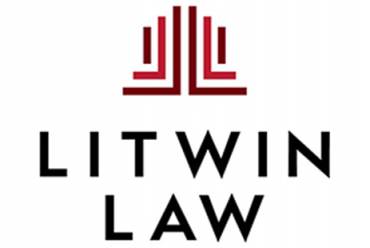Tax Obligations to Georgia Department of Revenue when Settling Syndicated Conservation-Easement Cases with IRS
Beginning in July 2024, the Internal Revenue Service (IRS) has notified participants in Syndicated Conservation Easements (SCE) of a new settlement initiative for non-docketed cases (i.e., cases under audit). SCE partnerships with a case pending in court cannot participate in the new settlement offer. But the IRS has also proposed a settlement offer, perhaps less attractive, for docketed cases (i.e., cases pending in court).
IRS Offer and Settlement Terms
Like other SCE settlements, the most recent settlement is offered to the SCE partnership at the partnership level. But from the individual partner’s perspective the offer is more favorable than other offers. First, the partner does not get a charitable contribution deduction tied to the conservation easement but, instead gets an ordinary deduction (or other deduction) for his/her investment in the SCE partnership. Second, the increased income (after backing out the charitable contribution and taking the ordinary deduction) is taxed under a 21% tax rate, which, for many partners is a reduced tax rate. Third, the partner must pay a 5% penalty and deficiency interest. The IRS will send the adjusted tax, interest and penalties to the SCE partnership. The partnership must send a single payment to the IRS. Thus, as with other SCE settlements, (1) the partnership must gather the monies from the partners and send the payment to the IRS and (2) the individual participant does not have to file an amended return with the IRS.
SCE Partnership Obligations to Georgia Department of Revenue
After any audit or federal change to a return, the partnership or pass-through entity must report a “final federal adjustment” to the Georgia Department of Revenue. The federal adjustment is the final after the date on which no federal adjustments arising from the audit remain to be finally determined, based on agreement (settlement). The “final determination date” is the date on which the last party signs the Closing Agreement. Within 90 days of the “final determination date,” the SCE partnership must file a report with the Georgia Department of Revenue. Also, the SCE partnership must notify each partner of his/her distributive share of adjustments. Finally, upon a proper election, which is beyond the scope of this article, the partnership can pay all additional state taxes on behalf of the partners.
Partner Obligations to the Georgia Department of Revenue
Per the terms of the IRS settlement, the SCE partnership and the IRS sign a Closing Agreement. Within 180 days of the date that the last party signs the Closing Agreement, the individual partner must (1) report to the Department of Revenue his/her distributive share of adjustments (as reported to the partner by the partnership) and (2) pay any additional tax, penalty and interest. The individual partner is not relieved of this duty simply because the SCE partnership fails to send the relevant information to the partner.
Consequences of Failing to Report Federal Change and Pay Additional State Taxes
If the individual partner fails to report the changed income arising from the settlement (by filing an amended Georgia return) within 180 days, then the Department of Revenue has five years, from the date that the Department receives a report from the IRS, to assess the taxpayer for additional state taxes for the respective tax year. Thus, the normal three-year statute of limitations for assessment increases to five years. Moreover, the five years does not start until the Georgia Department of Revenue receives “notice” of the IRS’s final determination. The date by which the Department of Revenue can assess an individual partner is unclear. This could lead to larger state tax bills due to the interest that accrues on the unpaid taxes. Therefore, when settling with the IRS, the individual partner is best advised to approach the Department of Revenue, as explained below.
Now is the Time to Approach the Georgia Department of Revenue
Before the IRS settlement is finalized, and before the partnership issues the report to the partner, an individual partner can approach the Georgia Department of Revenue to resolve his/her new state income tax liability resulting from an IRS settlement. The individual partner can resolve back state tax obligations through the Georgia Department’s favorable voluntary disclosure program. Under the program, the partner must pay back taxes and interest on the back taxes but is not liable for civil or criminal penalties. If the taxpayer has participated in more than one SCE partnership, the taxpayer can limit the period (or tax years) for which the taxpayer must pay back taxes. For example, a taxpayer who has participated in SCE partnerships for 2013, 2014, 2015, 2016 and 2017 may be able to limit his/her exposure to the three most recent years. Every case is different, and the result depends upon the facts and circumstances of each case.
Conclusion
A participant in a Syndicated Conservation-Easement partnership that elects to settle with the IRS, whether the matter is at the audit stage or is pending in court, must understand his/her Georgia state tax obligations commensurate with the IRS settlement payment. An individual taxpayer can minimize his/her liability, by using the Department of Revenue’s voluntary disclosure program. Through the program, the individual can (1) get a reduction of the number of years for which the taxpayer must pay back taxes and (2) get a waiver of penalties. The Department’s voluntary disclosure program is not available to every taxpayer. The individual taxpayer should consult with a state tax attorney about the best course of action.
For over 30 years and as a recognized Super Lawyer, Richard Litwin has devoted his practice to multistate tax, state and local tax, and tax controversies. He has chaired the State Bar of Georgia’s Section of Taxation and highly active on Georgia Department of Revenue committees.
Note: This document is an overview and summary of state and local tax obligations. This document is not intended to be, nor should be interpreted as, legal advice. For legal advice, the reader should contact an attorney.







